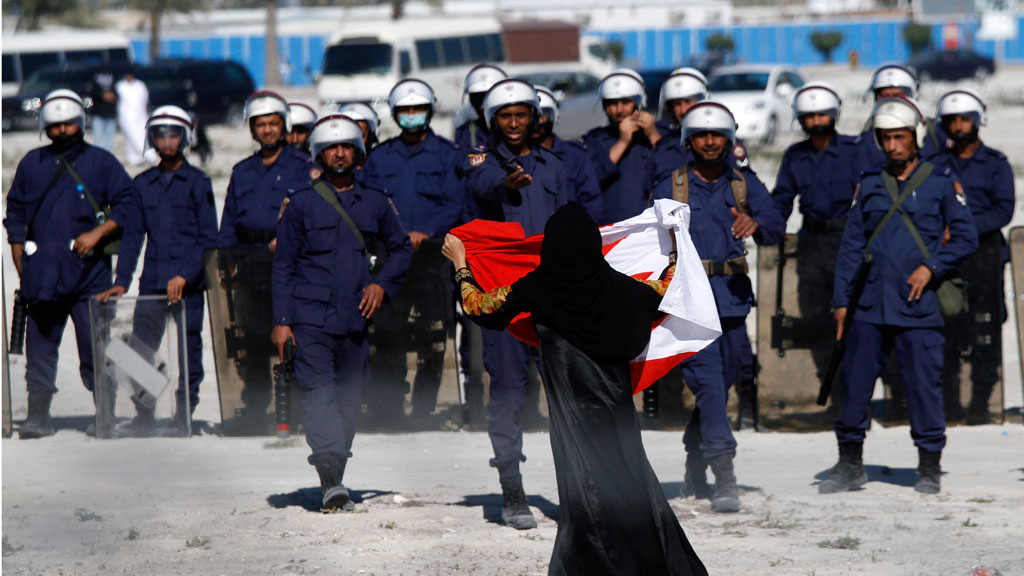Government ‘inconsistent’ over sporting boycotts
MPs are accusing the government of applying different moral standards to the Bahrain Grand Prix and Euro 2012 in Ukraine.

Whereas government ministers boycotted England group games in Ukraine this summer, they did not call for a boycott of the Bahrain Grand Prix, which suggests there was no “logic” in their approach to the two major sporting events, according to the Commons foreign affairs committee.
The government’s Ukraine boycott was in protest at the imprisonment of opposition leader Yulia Tymoshenko and was in line with similar moves by other EU countries.
Bahrain’s hosting of F1 in April 2011 was controversial because it followed a crackdown on anti-government protests.
‘Brutal repression’
In a report, the all-party committee says: “Given the Bahraini authorities’ brutal repression of demonstrators in February and March 2011, we believe that Bahrain should have been designated as a country of concern in the FCO’s 2011 report on human rights and democracy.”
A Day at the Races – Foreign Correspondent Jonathan Miller at the Bahrain Grand Prix
The MPs say “political and strategic factors” coloured the decision not to list the kingdom alongside other states held responsible for human rights abuses.
The government was under pressure to support a boycott of the Grand Prix, with Labour leader Ed Miliband calling for it to be cancelled.
But David Cameron said at the time that: “Bahrain is not Syria, there is a process of reform under way and this government backs that reform and wants to help promote that reform”.
‘No consistency of logic’
The committee says: “We find it difficult to discern any consistency of logic behind the government’s policy in not taking a public stance on whether sponsors, drivers or the media should boycott the Bahrain Grand Prix, but implementing at least a partial boycott of 2012 UEFA European football championship matches played in Ukraine.”
The MPs say they share the “unease” over the practice of deporting foreign nationals who are considered a threat to national security to countries where there is a risk of torture.
They say the practice, used most recently in the attempt to deport the radical preacher Abu Qatada to Jordan, would command greater confidence if the countries concerned had signed up to an international protocol requiring them to open up their places of detention to United Nations representatives.
The MPs also express concern about the way asylum seekers have been deported to countries such as Sri Lanka, despite fears they could face torture or abuse on their return.
There were “persistent allegations that asylum seekers who have been returned to Sri Lanka by the UK have suffered torture and ill-treatment”.
‘Not particularly forthcoming’
But the committee says: “When we tried to explore the issue, the government was not particularly forthcoming about its efforts, in general and in specific cases, to assess the level of risk to the safety of those who are removed from the UK. We found this unsatisfactory.”
The MPs call on the Foreign Office to take a more “energetic” approach to evaluating reports from the media and non-governmental organisations in assessing the risks of returning people to these countries.
The Foreign Office said in a statement that it would respond in full to the committee’s report at a later date, adding: “We promote human rights painstakingly and consistently.
“Our starting point for engagement on human rights with all countries is based on what is practical, realistic and achievable, although we are always ready to speak out as a matter of principle.”